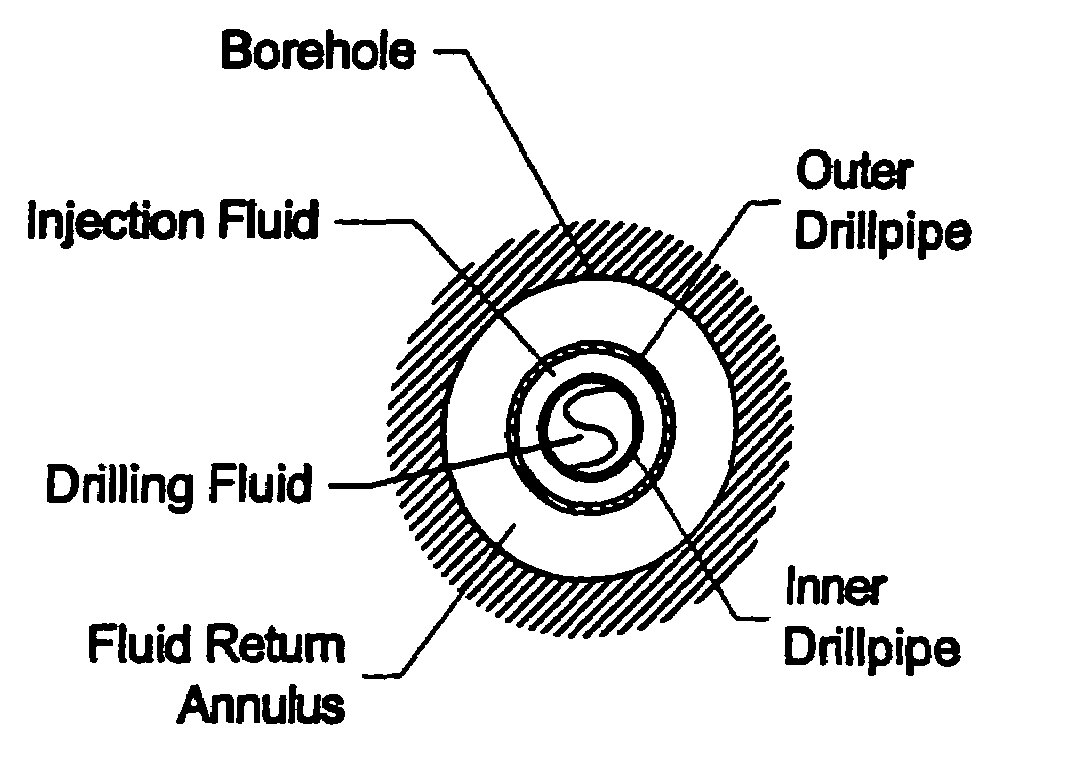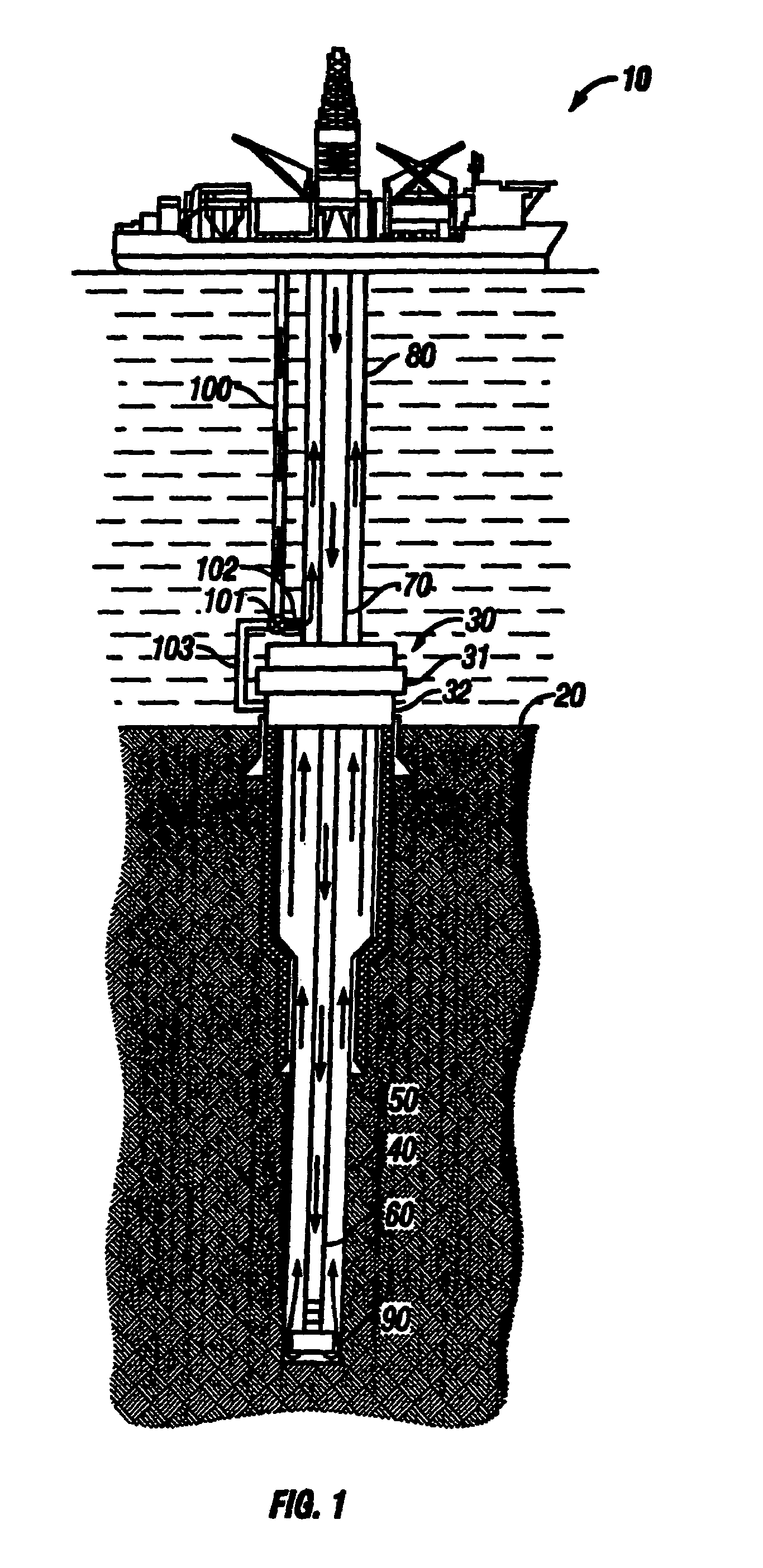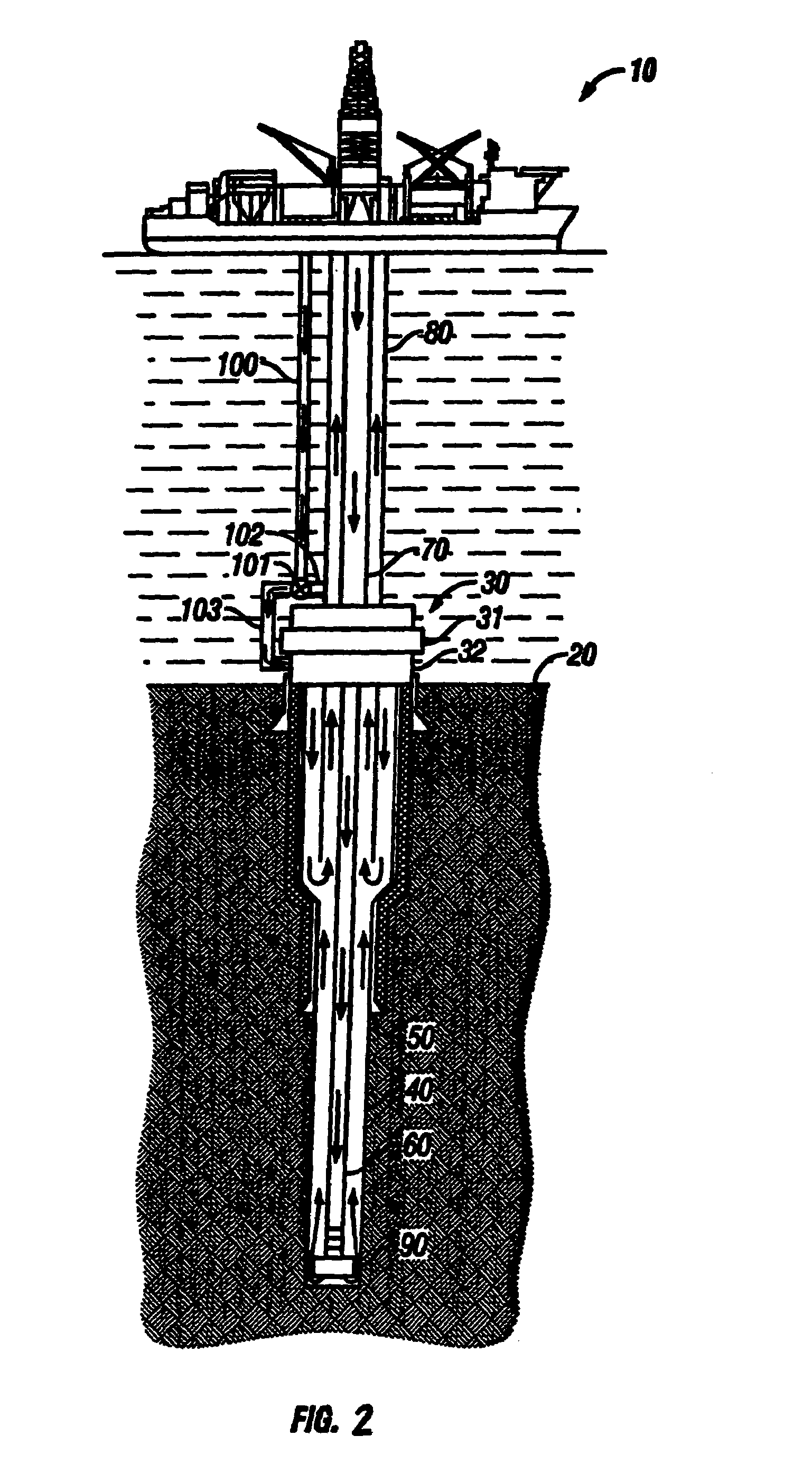System for drilling oil and gas wells using a concentric drill string to deliver a dual density mud
a drilling string and concentric technology, applied in the direction of drilling/well accessories, sealing/packing, survey, etc., can solve the problems of obstructing the wellbore, slipping and settle of cuttings and debris particles, and slow annular velocity for return, so as to reduce/increase the density of mud
- Summary
- Abstract
- Description
- Claims
- Application Information
AI Technical Summary
Benefits of technology
Problems solved by technology
Method used
Image
Examples
Embodiment Construction
[0063]With respect to FIGS. 1–2, a mud recirculation system for use in deepwater (i.e., beyond the continental shelf) offshore drilling operations to pump drilling mud: (1) downward through a drill string to operate a drill bit thereby producing drill cuttings, (2) outward into the annular space between the drill string and the formation of the wellbore where the mud mixes with the cuttings, and (3) upward from the wellbore to the surface via a riser in accordance with the present invention is shown. A drilling unit 10 is provided from which drilling operations are performed. The drilling unit 10 may be an anchored floating platform or a drill ship or a semi-submersible drilling unit. A series of concentric strings runs from the drilling unit 10 to the sea floor or seabed 20 and into a stack 30. The stack 30 is positioned above a wellbore 40 and includes a series of control components, generally including one or more blowout preventers or BOP's 31. The concentric strings include cas...
PUM
 Login to View More
Login to View More Abstract
Description
Claims
Application Information
 Login to View More
Login to View More - R&D
- Intellectual Property
- Life Sciences
- Materials
- Tech Scout
- Unparalleled Data Quality
- Higher Quality Content
- 60% Fewer Hallucinations
Browse by: Latest US Patents, China's latest patents, Technical Efficacy Thesaurus, Application Domain, Technology Topic, Popular Technical Reports.
© 2025 PatSnap. All rights reserved.Legal|Privacy policy|Modern Slavery Act Transparency Statement|Sitemap|About US| Contact US: help@patsnap.com



